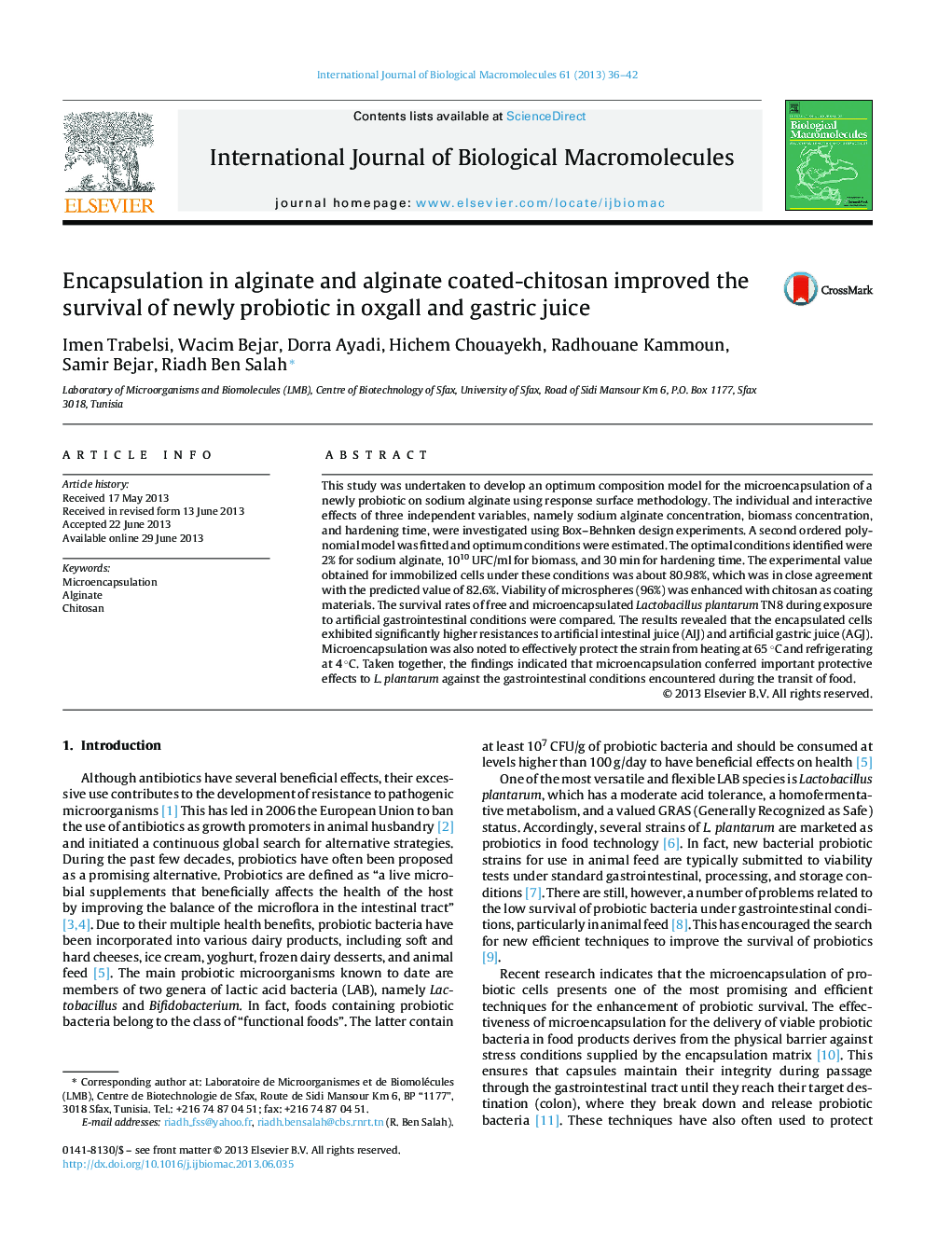| Article ID | Journal | Published Year | Pages | File Type |
|---|---|---|---|---|
| 1986747 | International Journal of Biological Macromolecules | 2013 | 7 Pages |
Abstract
This study was undertaken to develop an optimum composition model for the microencapsulation of a newly probiotic on sodium alginate using response surface methodology. The individual and interactive effects of three independent variables, namely sodium alginate concentration, biomass concentration, and hardening time, were investigated using Box-Behnken design experiments. A second ordered polynomial model was fitted and optimum conditions were estimated. The optimal conditions identified were 2% for sodium alginate, 1010 UFC/ml for biomass, and 30 min for hardening time. The experimental value obtained for immobilized cells under these conditions was about 80.98%, which was in close agreement with the predicted value of 82.6%. Viability of microspheres (96%) was enhanced with chitosan as coating materials. The survival rates of free and microencapsulated Lactobacillus plantarum TN8 during exposure to artificial gastrointestinal conditions were compared. The results revealed that the encapsulated cells exhibited significantly higher resistances to artificial intestinal juice (AIJ) and artificial gastric juice (AGJ). Microencapsulation was also noted to effectively protect the strain from heating at 65 °C and refrigerating at 4 °C. Taken together, the findings indicated that microencapsulation conferred important protective effects to L. plantarum against the gastrointestinal conditions encountered during the transit of food.
Keywords
Related Topics
Life Sciences
Biochemistry, Genetics and Molecular Biology
Biochemistry
Authors
Imen Trabelsi, Wacim Bejar, Dorra Ayadi, Hichem Chouayekh, Radhouane Kammoun, Samir Bejar, Riadh Ben Salah,
